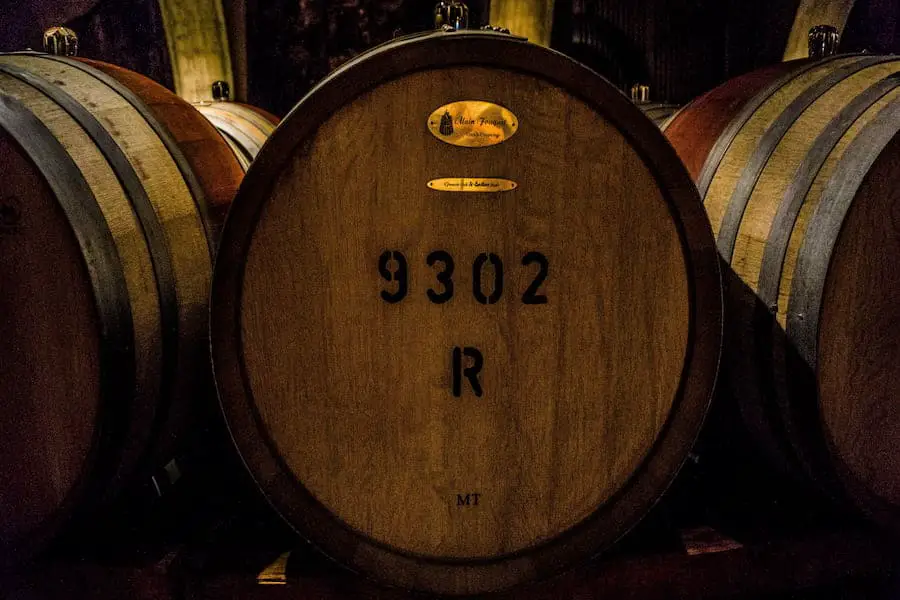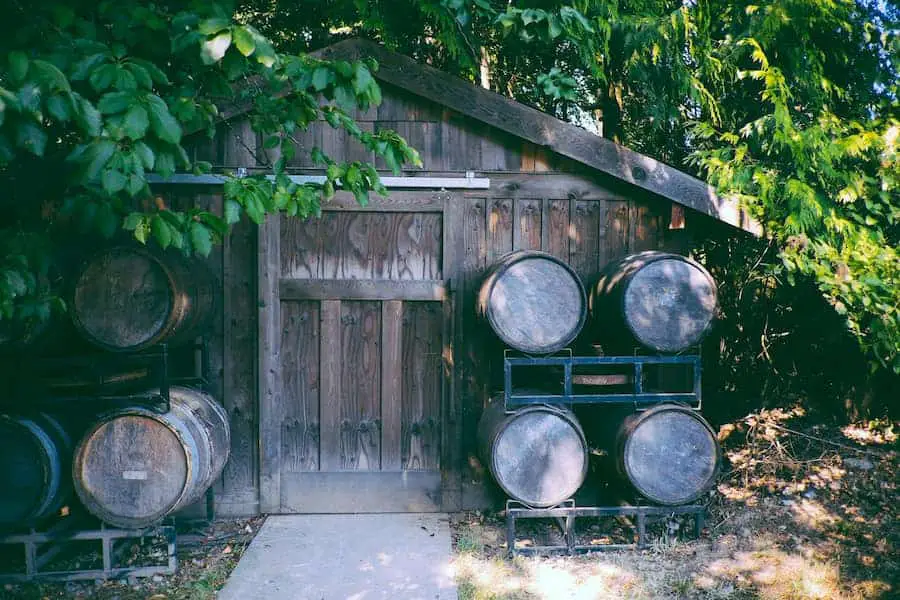If you buy something through a link in our posts, we may get a small share of the sale.
Homebrewing is a great way to take your passion to the next level if you are a beer enthusiast. Although the minimum drinking age in the American federal law is 21 years, is it illegal to brew your own beer under 21?
Contents
- Is It Illegal to Brew Your Own Beer Under 21?
- The Constitutional Act That Governs Homebrewing
- The Law Governing the Amount of Homebrew an Under 21 Can Make
- The Federal and State Laws Governing Whether an Under 21 Can Make Homebrew Beer Together With an Adult
- The Federal and State Laws Governing the Selling of Homebrewed Beer
- State Laws for Homebrew Transportation
- Final Thoughts
Is It Illegal to Brew Your Own Beer Under 21?
It is not illegal to brew your own beer or possess brewing equipment and ingredients under 21 according to federal law. However, this legislation varies from state to state and some states are very restrictive. For instance, some state laws prohibit people under 21 from purchasing brewing equipment and ingredients.

It means you will enter into a legal gray area as many states require people to be at least 21 years before legally engaging in brewing.
Also, some states provide exemptions for underage drinking, while other states do not offer an exemption for the minimum legal drinking age. The following chart breaks down the regulations of the different states on home brewing and consumption of beer in terms of age.
| State | Legal age to possess or buy homebrew equipment and ingredients | Legal age for gathering the ingredients to make homebrew beer | Legal age to possess or consume home brew beer | Specific exemptions for beer consumption under the age of 21 |
| Alabama | 21 | 21 | 21 | No exception |
| Alaska, Delaware, Maine, New Mexico, Virginia | N/A | 18 | N/A | Only in private premises under spousal or parental consent |
| Arizona, Idaho, Indiana, Nebraska, New York, North Carolina, North Dakota, Pennsylvania, Tennessee, Utah | N/A | 18 | 21 | No exception |
| Arkansas | N/A | 21 | N/A | With spousal or parental consent |
| California, Florida, Illinois, New Hampshire, Oklahoma, Vermont | N/A | 21 | 21 | No exception |
| Colorado | N/A | 18 | N/A | With parental consent and on private premises |
| Connecticut, Massachusetts, Ohio, South Dakota, West Virginia, Wisconsin, Wyoming | N/A | 18 | N/A | With the spousal or parental consent |
| Georgia | N/A | 18 | N/A | Only in the guardians or parents home, and under the consent of the parent |
| Hawaii, Kentucky, Nevada, Rhode Island, Washington | N/A | 18 | N/A | With parental consent |
| Iowa | N/A | 21 | N/A | With parental consent and on private premises |
| Kansas | N/A | 18 | N/A | With parental consent, the beer should be under 3.2% ABV |
| Louisiana | N/A | 21 | N/A | With spousal or parental consent |
| Maryland | N/A | 21 | N/A | With spousal or parental consent and in a private location |
| Michigan | N/A | 21 | N/A | Only in guardians or parents home |
| Minnesota | N/A | 18 | N/A | With parental consent and in guardians or parents home |
| Mississippi | N/A | 21 | N/A | With parental consent, the beer should be light |
| Missouri, New Jersey | N/A | 21 | N/A | With parental consent |
| Montana | N/A | 18 | N/A | The beer should not exceed 0.05 BAC and with a parental consent |
| Oregon | N/A | 18 | N/A | With parental consent and on private premises |
| South Carolina | N/A | 18 | N/A | With spousal or parental consent and in guardians or parents home |
| Texas | N/A | 18 | N/A | Under the consent and supervision of a spouse or parent |
The Constitutional Act That Governs Homebrewing
The homebrewing acts set the limit for homebrew production in terms of age and the number of adults. The HR 1337 that President Jimmy Carter signed into law in 1978 allows and even provides tax exemptions for adults to brew beer for family and personal use and not for sale.

According to the National Minimum Drinking Age Act of 1984, there is no ban on the consumption of alcohol for people below 21 years. However, it bans the following:
- The public possession of alcohol for people under 21 years old
- The sale of alcoholic drinks to persons under the age of 21 years
This regulation clarifies that the public perception of alcohol doesn’t include the following:
- The minor possessing the alcohol publicly due to religious reasons. However, the religious functions and beliefs must be well established.
- The minor possessing the alcohol publicly while in the company of a legal guardian, spouse, or parent who is 21 years or older
- The minor possessing the alcohol publicly due to legal reasons such as court orders.
- In private premises or clubs even if they are in urban places.
- Publicly possessing alcohol for medical reasons such as when administered or prescribed by a licensed medical institution, hospital, nurse, dentist, pharmacist, or physician.
- If the person under 21 years dispensing, transporting, handling, or selling the alcoholic beverage is a lawful employee of a duly licensed wholesaler, retailer, or manufacturer of alcoholic beverages.
How the National Minimum Drinking Age Act of 1984 Relates to the HR 1337 of 1978
Considering that homebrewing doesn’t involve buying or selling alcohol but brewing and consuming the alcoholic drink on private premises, then the National Minimum Drinking Age Act of 1984 does not affect the HR 1337 regulations.
Although the NDAA doesn’t affect HR 1337, it doesn’t exempt the state laws governing brewing and beer consumption. Some state and local laws legalize or prohibit persons under 21 from getting into a brewery. In others, an under 21 can sample alcohol on brewery tours if their parents permit them.
Before purchasing home brewing equipment and ingredients, check on the above chart to ensure that your state allows it. It is also advisable to check on your municipal and local regulations on home brewing before undertaking the project.
The Law Governing the Amount of Homebrew an Under 21 Can Make
Even if the federal and state laws allow you to make homebrew at under 21 years, the law doesn’t clarify the amount of homebrew an under 21 can make per year. The HR 1337 regulation allows a household with one adult to brew only 100 gallons of beer per year.
On the other hand, if the household has two adults, they can brew up to 200 gallons per year. However, some local and state laws can be more restrictive. In most cases, the state laws on home brewing are not comprehensive and don’t clarify how this trend can continue if a household has around 10 adults.
For instance, some state laws might restrict a household to have at least two or more people who are 21 years or older to make 200 gallons of beer per year. That means the exact amount of beer you can brew in one year will depend on your location.
The Federal and State Laws Governing Whether an Under 21 Can Make Homebrew Beer Together With an Adult
Although the laws might restrict you from homebrewing if you are under 21, it is a gray area when it comes to brewing it with your older friend. Typically, the law doesn’t clarify whether it is legal for a minor to brew beer in the company of an older friend.

That means brewing homebrew with a family member or a responsible friend won’t get you into trouble. However, it is illegal to consume beer under 21, and so do not consume it openly. Many State laws prohibit selling homebrew but don’t clarify whether it is legal to give it away.
However, some states, such as California, have comprehensive laws prohibiting even giving the beer away. Considering that homebrew is for personal use only, you can only drink it in a private residence or domestic premises. That means you can’t drink the beer or give it to your friend after brewing.
The Federal and State Laws Governing the Selling of Homebrewed Beer
It can be a major concern whether to sell your homebrew if the federal and state laws allow you to make it while under 21 years and prohibit you from drinking. Considering the brewing process can be expensive, you may also want to sell some beer to fund the brewing project.
If you are determined to sell your beer, you can apply for a commercial license, and the exercise taxes and legal regulations will start applying. Keep in mind that applying for a commercial license will also mean your home brewing facility meets the standards for microbreweries in terms of equipment and hygiene.
However, some state laws give exemptions if you donate the beer to non-profit and charitable organizations for fundraising purposes. Keep in mind that the law doesn’t clarify how much beer a person under 21 can brew. That means there is no clarification on how much beer an under 21 can purchase from a non-profit and charitable organization.
State Laws for Homebrew Transportation
Although the federal laws do not clarify the restrictions of transporting homebrew, some state laws restrict how much homebrew you can transport. Around 29 states in the United States allow people to transport homebrew to festivals, residences, competitions, and other events.
Keep in mind that the state laws that govern whether and under 21 can publicly possess homebrew will still apply when it comes to the transportation of homebrew. That means you cannot transport homebrew if your state prohibits persons under 21 years from publicly possessing homebrew.
The homebrew transportation laws can also limit how much homebrew you can transport at once. Alabama allows maximum transportation of 10 aggregate gallons of wine, mead, cider, or beer for one event. States such as Vermont only allow you to transport homebrew to events that don’t require an entry fee.
Final Thoughts
So, is it illegal to brew your own beer under 21? Although federal law allows you to brew your own beer under 21, it is illegal in some States. It is advisable to check on the state, local and municipal laws before brewing your own beer if you’re under 21. Another tip is to read some of the best home brewing books to gain more knowledge.

